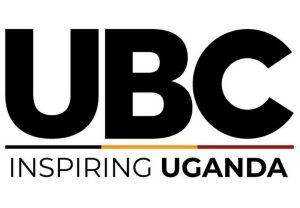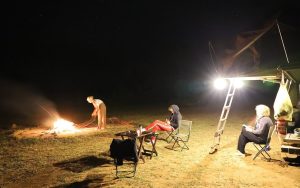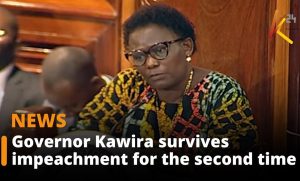The recent concerns raised by the Media Council of Kenya about the Muliro Garden photos in the The Star newspaper point to a fundamental question on the issue of public interest and the respect for the code of conduct in media practice.
Weeks after pictures surfaced online showing persons in intimate positions at the public park in Kakamega Town, The Star newspaper ran one of the pictures. In an editorial responding to a barrage of public outrage, the paper defended its decision on the grounds that it wanted to instigate national debate on the issue.
Following publication of the photos in the daily, the media came under serious public scrutiny on its role in upholding ethical standards in its practice. The photo reminded us that ‘The Code of Conduct and Practice of Journalism in Kenya’ that the media fraternity developed a couple of years ago are not being adhered to in full.
While the Constitution gives media far reaching freedom, its places a caveat on this freedom. In Article 35 Section 5, the Constitution requires Parliament to create an independent body that shall “set media standards and regulate and monitor compliance with those standards.” That body already exists as the Media Council of Kenya, and The Code of Conduct is part of the Media Act 2008.
It is instructive to note that media scholars and practitioners are currently re-examing ‘The Code of Conduct’ in line with the Constitution and the new Media Bill scheduled for publication.
Indeed, as the photo reminded us about the ethics, it also raised other important questions: Which ethics? Who needs to be ethically conscious? And how will ethical standards be met?
Which ethics?
Journalism ethics is concerned with making sound moral decisions in journalistic performance and it assumes the presence of societal morality. Morality has to do with actions guided by generally acceptable human values and responsibilities. Compatible human values and responsibilities constitute a moral system.
A journalist should ask herself to whom his or her sense of duty is when writing a story, choosing words or deciding on the pictures to use. Is the duty owed to self, readers, audience, media houses, colleagues, or to society as a whole?
The answer to the question of what duties a journalist owes to self and to all other parties may itself have various permutations: respect for human dignity; respect for privacy; preservation of human life; not allowing other human beings to suffer unnecessarily because of our actions; maintaining human decency and good taste, among others.
The late journalism scholar Francis Kasoma, formerly of University of Zambia, said: “When journalists are aware that people know their unethical practices and can protest about them, they are likely to be more careful about how they practice their profession.”
But who should be ethically conscious? Unlike the traditional professions of law and medicine and others, journalism is uniquely a team profession. The reporter or the producer, the immediate supervising editor, the editor-in-chief or the director, the publisher or the station director, the printer or transmitting engineer and many more in between are all active participants in the journalistic process. Any of them can undo or improve on the other’s work with telling ethical effects.
While a lawyer’s or doctor’s ethical or unethical deed usually begins and ends with her or him, the same cannot be said of journalists. The personal acts of journalists have a way of affecting the whole team in one way or the other.
For example, when a reporter reports lies, it affects all journalists and not the reporter alone. From such incident, people start forming stereotypes about the profession, such as the idea that ‘journalists are liars or corrupt’. This is common in Kenya.
It is, therefore, the whole journalistic team, starting from the reporter up to the entire media house, that needs to be ethically conscious.
Likewise, the concern of moral journalism should not be restricted to journalists only. People—newsmakers and the media consumers alike—who are the real victims of unethical journalistic practice, should be conscious about ethical journalism. They have a broad moral duty to police the media because journalists derive their moral authority and existence from the public. We are the public’s watchdog.
It is the people who are adversely affected by unethical journalistic behaviour. The people can help to promote better journalistic morals by demonstrating that they are aware of, and take great exception to, unethical journalistic practices.
Ethical standards
How will the ethical standards be met? It has been pointed out that education in journalism ethics for both journalists and members of the public would help the conscience of journalists towards practicing ethical journalism.
What I feel lacking is that we have not indicated exactly how education and public pressure would encourage or in fact force journalists to have an ethical approach to their work.
And yet in most cases people have reduced journalism ethics to the study of codes of journalists’ conduct, an approach some scholars are uncomfortable with.
Dickson, in ‘Golden Mean of Journalism’ argues that equating journalism ethics with codes of conduct encourages ad hoc or situational ethics. She writes that:
“Because such codes are at best normative guidelines based on no common moral philosophy, journalists tend to resort to situation by situation analyses of their ethical practices. The problem with a situational approach is that a journalist’s evaluation of his or her actions is always ad hoc in nature. Unfortunately, ad hoc evaluations based on situational ethics are insufficient to ensure that in the future journalists will act in a moral and responsible fashion.”
The other thing we have failed to do is focus on media managers as well when tackling ethical issues in the media. Journalists, who bear the brunt of unethical reporting, find it difficult, if not impossible, to apply ethical standards if they work under bosses who do not understand what journalism ethics is all about and have no intention of promoting it.
For now, the lessons the media houses must have learnt from this photo incident in The Star is that their audiences are increasingly becoming media literate and are going to hold the media accountable for any unethical practices.
The writer is the Executive Director of African Woman and Child Features





